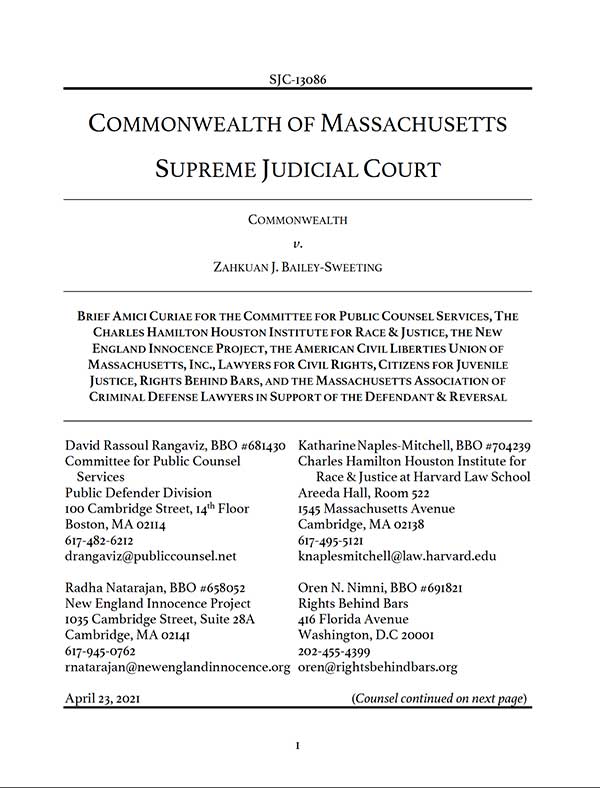From Chauncey B. Wood, MACDL Amicus Curiae Committee
The Amicus Brief for Commonwealth vs. Bailey-Sweeting (available for viewing and download below) explains why gang databases are artificial racist constructs and unreliable indicators of criminal behavior. Therefore, the fact that someone has been placed in a gang database should not be a basis for reasonable suspicion that he or she has committed a crime.
Much like recent scholarship and legal advocacy attacking police reliance on the notion of “high crime areas” to justify seizures and searches, this brief explains how designating people as “validated” gang members criminalizes being Black or brown in Massachusetts.
The authors of this brief hope that the SJC will use this argument to develop 4th Amendment law in ways that reduce racial disparities in police-citizen street encounters by forcing police to justify decisions to stop people with empirically reliable evidence of criminal conduct that are not hopelessly infected with racism.
On a more practical level, I hope MACDL will educate and encourage its members to attack police reliance on “high crime areas” and “validated” membership in a law enforcement created “gang” data-base to justify seizures and searches of our clients. These are vital steps – along with requiring police to note the race of every motorist they stop whether or not they issue a citation or make an arrest – to force police across Massachusetts to confront the systemic racism that has infected their policing of communities of color and change their conduct.

